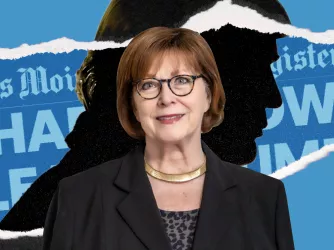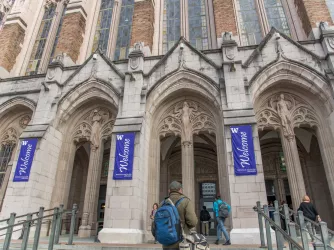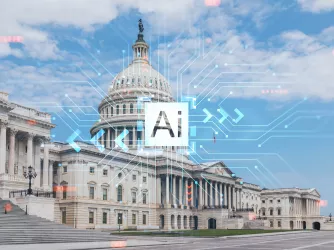Table of Contents
Victory Stands: Eleventh Circuit Denies Former Valdosta State President’s Appeal
In a victory for student rights, the United States Court of Appeals for the Eleventh Circuit has denied former Valdosta State University President Ronald Zaccari's petition for rehearing en banc in the case of Barnes v. Zaccari.
A party may appeal an appellate court's decision by requesting en banc review, which, if granted, means that all of the circuit's judges will review the decision reached by the appellate panel of three judges. En banc review is governed by Rule 35 of the Federal Rules of Appellate Procedure, which states that en banc review is only appropriate when (A) the panel decision conflicts with precedent from the Supreme Court or the circuit itself, such that review is "therefore necessary to secure and maintain uniformity of the court's decisions"; or (B) the case "involves one or more questions of exceptional importance." In his petition for en banc review, Zaccari's counsel argued that in finding Zaccari to have violated "clearly established" law regarding student due process rights, the Eleventh Circuit panel's decision conflicted with earlier circuit decisions.
Per the Eleventh Circuit's internal operating procedures, en banc review may first be granted by the panel. If the panel declines to grant review, any active Eleventh Circuit judge may request that a poll of the entire bench be taken to determine support for en banc review. If no judge requests a poll in the time allotted for such requests, "the panel, without further notice, may take such action as it deems appropriate on the petition." No judge requested a poll of support for Zaccari's petition for review, and the panel subsequently denied the petition.
The denial means that the unanimous decision against Zaccari issued by an Eleventh Circuit panel this past February will not be revisited by the appellate court. In that decision, the Eleventh Circuit held that Zaccari may be found personally liable for violating the clearly established due process rights of former VSU student T. Hayden Barnes. Joined by 14 other organizations concerned about student rights on public campuses, FIRE authored and filed an amici curiae brief with the Eleventh Circuit in April 2011 urging that result.
At present, it is unclear whether Zaccari will file a petition for writ of certiorari with the Supreme Court of the United States requesting review of the Eleventh Circuit's decision, or whether the case will now return to the district court for further proceedings. Zaccari has 90 days from the date of the Eleventh Circuit's order (May 25) to file a petition with the court—until August 23.
Here's the timeline of Barnes' case from our February press release:
Barnes' ordeal began in the spring of 2007, when he peacefully protested Zaccari's plan to spend $30 million of student fee money to construct two parking garages on campus. By posting flyers and sending emails to Zaccari, student and faculty governing bodies, and the Board of Regents of the University System of Georgia, Barnes expressed his concerns and proposed what he saw as environmentally friendly alternatives. Barnes also penned a letter to the editor of the VSU student newspaper about the proposed parking garage plans and wrote to Zaccari to ask for an exemption from the mandatory student fee designated for funding the construction.
In response to Barnes' activism, Zaccari personally ordered that he be "administratively withdrawn" from VSU, ignoring the concerns raised by members of his administration. Zaccari claimed that Barnes presented a "clear and present danger" to both Zaccari and the VSU campus on the basis of a cut-and-paste collage Barnes had posted on his Facebook page that included pictures of Zaccari, a parking deck, and the caption "S.A.V.E.-Zaccari Memorial Parking Garage." Barnes was given no notice or opportunity to defend himself, and came to FIRE for help. In January 2008, Barnes filed suit, represented by eminent First Amendment attorney and FIRE Legal Network member Robert Corn-Revere of the law firm Davis Wright Tremaine in Washington, D.C., with Cary Wiggins of the Wiggins Law Group in Atlanta, Georgia serving as local counsel.
The Eleventh Circuit's decision affirms a federal district court's September 2010 ruling that denied qualified immunity to Zaccari at this stage in the proceedings. The U.S. District Court for the Northern District of Georgia found that because Zaccari expelled Barnes without notice or a hearing, Zaccari violated Barnes' constitutional right to due process. In its opinion, the district court ruled that because Zaccari ignored "clearly established" law in punishing Barnes, Zaccari could not avail himself of the defense of "qualified immunity," and could be found personally liable for damages.
Zaccari and the Board of Regents appealed the district court's ruling to the Eleventh Circuit in October 2010, and oral arguments in the case were heard in Montgomery, Alabama, in November 2011. Corn-Revere argued Barnes' case. While yesterday's ruling upheld the district court's denial of qualified immunity to Zaccari, the Eleventh Circuit reversed a breach of contract finding against the Board of Regents, holding that the State of Georgia had not consented to waive its Eleventh Amendment immunity from suit in federal court for breach of contract claims.
Responding to the Eleventh Circuit's grounds for reversal on the breach of contract claim, Barnes filed a complaint for damages against the Board of Regents in Georgia state court on March 20 alleging the same breach of contract. Of course, we will have updates on that case, Barnes v. The Board of Regents of the University System of Georgia, as it proceeds.
Recent Articles
FIRE’s award-winning Newsdesk covers the free speech news you need to stay informed.

FIRE’s defense of pollster J. Ann Selzer against Donald Trump’s lawsuit is First Amendment 101

University of Washington alumni seek to revive the spirit of free inquiry

Meta’s content moderation changes closely align with FIRE recommendations
